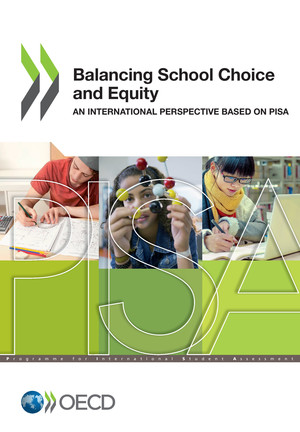copy the linklink copied! Foreword
Many countries are struggling to reconcile their aspirations for greater flexibility and more opportunities for parents to choose their child’s school with the need to ensure quality, equity and coherence in their school systems. The new analyses from PISA presented in this report suggest that this is an achievable goal. School choice, in and of itself, neither assures nor undermines the quality of education. What matters are smart policies that maximise the benefits of choice while minimising the risks, and establishing a level playing field for all providers to contribute to the school system.
School choice will only generate the anticipated benefits when the choice is real, relevant and meaningful, i.e. when parents can choose an important aspect of their child’s education, such as the pedagogical approaches used to teach them. If schools are not allowed to respond to diverse student populations, and to distinguish themselves from each other, choice is meaningless. In turn, private schools need to accept the public steering and accountability mechanisms that ensure the attainment of public-policy objectives in exchange for the funding they receive from the public purse.
All parents must be able to exercise their right to choose the school of their preference; that means government and schools need to invest in developing their relationships with parents and local communities, and help parents make informed decisions. Successful choice-based systems have carefully designed checks and balances that prevent choice from leading to inequity and segregation. Not least, the more flexibility there is in a school system, the stronger public policy needs to be. While greater school autonomy, decentralisation and a more demand-driven school system seek to devolve decision making to the frontline, central authorities need to maintain a strategic vision and clear guidelines for education, and offer meaningful feedback to local school networks and individual schools.
In other words, only through a concerted effort by central and local education authorities will school choice benefit all students.

Andreas Schleicher
Director for Education and Skills
Special Advisor on Education Policy to the Secretary-General
Metadata, Legal and Rights
https://doi.org/10.1787/2592c974-en
© OECD 2019
The use of this work, whether digital or print, is governed by the Terms and Conditions to be found at http://www.oecd.org/termsandconditions.


